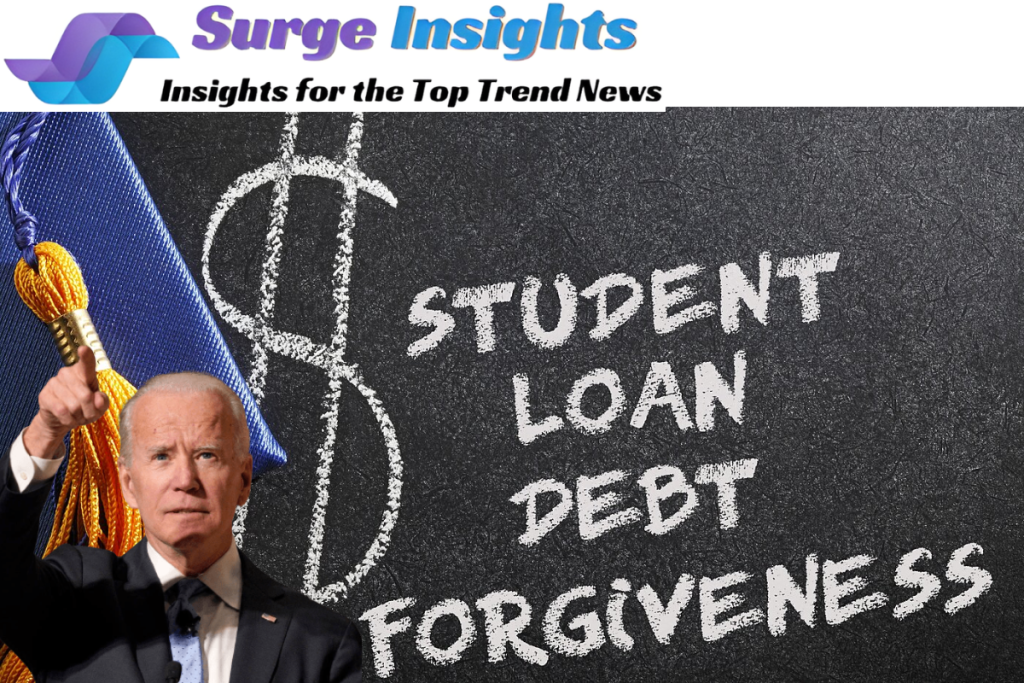
In a significant legal victory for President Joe Biden’s administration, a federal judge recently lifted a block on Biden’s student loan forgiveness plan, clearing the way for millions of borrowers to receive relief. The latest iteration of this program, developed after the Supreme Court struck down an earlier attempt, aims to wipe out some or all federal student loan debt for certain groups, including those with long-standing debt or those who haven’t benefited from existing relief programs.
The Court Ruling: A New Opportunity
The recent court ruling in Georgia allowed a temporary block on the forgiveness program to expire. This ruling, though still under legal scrutiny, is a significant step toward delivering relief to millions of student loan borrowers. The case will now be decided by a federal court in Missouri, with a possibility of ending up in the Supreme Court, which previously struck down Biden’s initial forgiveness efforts.
Also Read: University of the Arts Students Are Welcomed by Drexel with the UArts-Drexel Pathway Program
The plan would potentially impact 30 million borrowers, with an estimated 4 million already having received some form of loan forgiveness under earlier programs. For now, the ruling allows Biden’s administration to push forward, though ongoing legal challenges are expected.
Who Could Benefit from the Program?
The Biden administration’s latest student loan forgiveness initiative primarily targets:
- Borrowers whose debts have grown disproportionately due to accrued interest.
- Individuals with long-standing federal student loans, including those who have struggled for decades.
- Borrowers who qualify for existing debt relief programs but have yet to apply.
The forgiveness program, estimated at $147 billion, is designed to offer meaningful relief to those facing overwhelming debt burdens, especially as student loan repayments have resumed after a COVID-19 pause.
Legal Challenges Ahead
While the recent ruling provides momentum, further legal challenges are likely. Republican-led states, including Missouri, argue that the program is unconstitutional, and similar concerns may eventually reach the Supreme Court again. The central argument is that the president’s authority to cancel loans may exceed executive powers, as it did in the court’s ruling against the first forgiveness attempt. However, this new plan is structured differently and based on a distinct legal foundation, which may improve its chances of survival in court.
Impact on Borrowers
For borrowers, this legal victory offers hope. Many who had been anxiously awaiting clarity on their financial futures now see a pathway to relief. If the program survives further legal scrutiny, it could offer a substantial reduction or complete elimination of federal student loan debt for millions. This would be particularly impactful for lower-income borrowers, public servants, and those working in non-profit sectors, who often struggle with loan repayments.
The program also signals a broader shift in how federal student loan debt is approached. With this new attempt, Biden aims to address systemic issues like the disproportionate growth of interest on unpaid loans and provide relief to those trapped in cycles of debt for years.
Broader Economic Implications
Beyond individual borrowers, the success of this program could have wide-reaching economic effects. Student loan debt is often cited as a major barrier to economic mobility, with borrowers delaying homeownership, saving for retirement, or making significant life investments due to the burden of repayment. Forgiveness could free up financial resources for millions, potentially boosting economic activity in other sectors.
On the other hand, opponents argue that widespread forgiveness could set a precedent for future executive overreach and create expectations of similar interventions for other forms of debt.
The Path Forward
As the case moves through the courts, borrowers, advocates, and critics alike will be watching closely. The outcome will not only affect those currently holding student debt but may also shape the future of higher education financing in the U.S.
In the meantime, borrowers are advised to stay updated on developments and prepare for the possibility of loan relief. For now, the legal hurdles facing Biden’s plan represent a complex and evolving landscape, with millions of borrowers hanging in the balance.
This recent victory in Georgia is a step forward for the Biden administration, but the legal battles are far from over. The ultimate fate of the student loan forgiveness plan will likely rest with the federal courts, and possibly the Supreme Court.
Final Words
The Biden administration’s latest effort to address the student loan crisis has cleared a crucial legal hurdle, giving hope to millions of borrowers. However, with ongoing legal challenges, the future of the program remains uncertain. Should it prevail, the program could have a transformative impact on the lives of millions of Americans, reducing their financial burdens and providing greater economic flexibility. Whether this program will stand the test of legal scrutiny is yet to be seen, but for now, borrowers have a reason to remain hopeful (Investopedia) (Investopedia).
